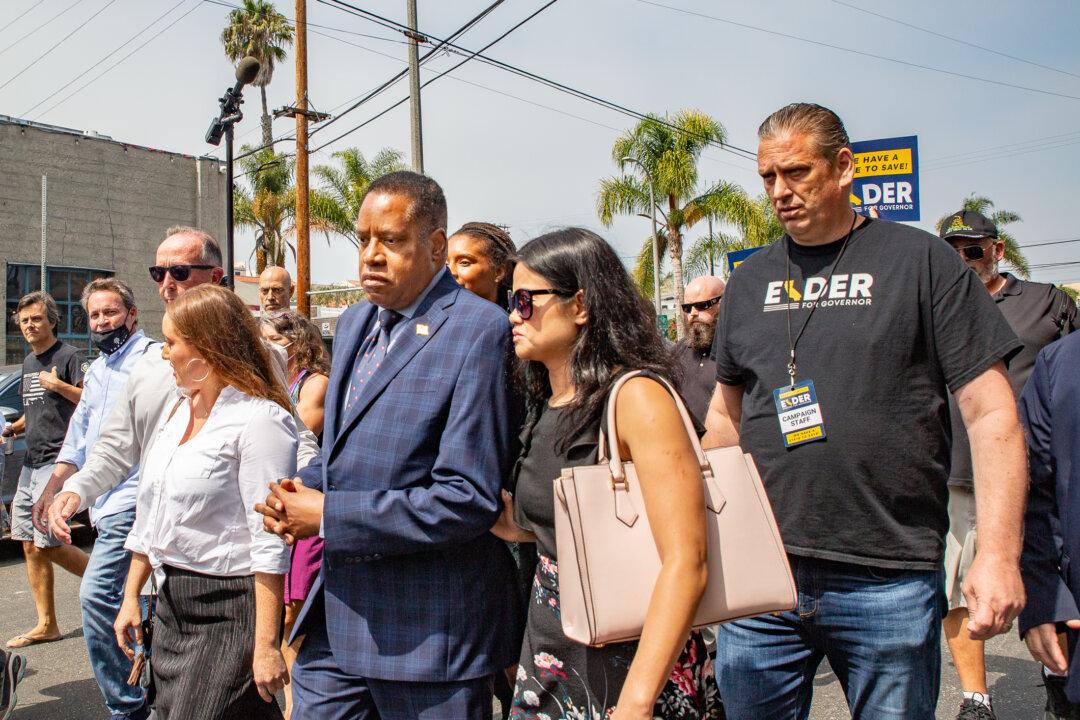California gubernatorial candidate Larry Elder laid out his plan to address homelessness after his walk-through of a homeless encampment in Venice was cut short due to harassment and attacks from protesters on Sept. 8. Elder was invited to tour the homeless encampments by Venice Beach residents.
While Elder was joined by 30 media personnel and members of the public as he toured the homeless encampments on Rose Ave., a group of protesters shouted insults and hurled projectiles, including eggs. A member of Elder’s security detail attempted to stop a woman in a pink gorilla mask from throwing eggs; she struck the security guard, who was struck by another person moments later.





